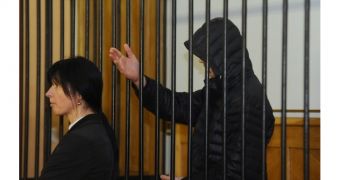Deniss Calovskis, one of the three people charged with the creation and dissemination of the Gozi banking trojan, has been set free by a New York judge.
District Judge Kimba M. Wood, from the New York Southern District Court, has sentenced Mr. Calovskis to 21 months of time served, after the Latvian hacker pleaded guilty to conspiracy to commit computer intrusion, in September 2014.
Mr. Calovskis was arrested in Latvia, in November 2012, for his role in the creation of the Gozi computer virus. Two other suspects from Russia and Romania were also arrested.
Extradition to the US took longer than expected, and for good reason, looking back
After spending ten months in a Latvian prison, he was later set free by local authorities due to his limited role in the Gozi cybercrime campaign. US authorities then tried to extradite him to the US, to face trial on charges that added up to a total of 60 years in prison.
Both Latvia and the European Court of Human Rights tried to block the extradition process, but US authorities eventually got a favorable ruling from a Latvian court, and in early 2014, Mr. Calovskis was extradited to the US.
Here he spent an additional 11 months in prison, before pleading guilty last September.
Calovskis was never the true mastermind behind Gozi
Gozi is a banking trojan that sneakily logs a user's credentials when accessing online banking portals, sending the data to an attacker's remote server.
According to court documents filed in December last year, the prosecution admitted that the gathered evidence points to the fact that Mr. Calovskis played a small role in the Gozi campaign, which infected up to 1 million computers around the world.
Mr. Calovskis was only responsible for creating a small part of the Gozi virus, wasn't involved in the trojan's dissemination, and did it only for the money, receiving a mere $1,000 for his role.
"Further, he did not begin participating in the conspiracy until years after the malware had been created. [...] The Government does not believe that he otherwise financially benefitted from the sale of the malware or the financial information that was stolen by the malware," noted Preet Bharara, United States Attorney for the prosecution.
Following the sentence, Mr. Calovskis is now free to return to his home in Latvia, unless the prosecution wants to appeal, which is highly unlikely based on previous documents.

 14 DAY TRIAL //
14 DAY TRIAL //